Florida and the Caribbean likely bring to mind vacations full of beautiful, sandy beaches, coral reefs teeming with life, swaying palm trees, and picturesque sunsets. But a deeper dive reveals the tragic impacts of marine debris to our local wildlife, our fishing and tourism economies, and the health of our waters. Our newest partners in the region have already risen to the challenge and are working hard to implement creative solutions to remove debris and prevent it at the source.
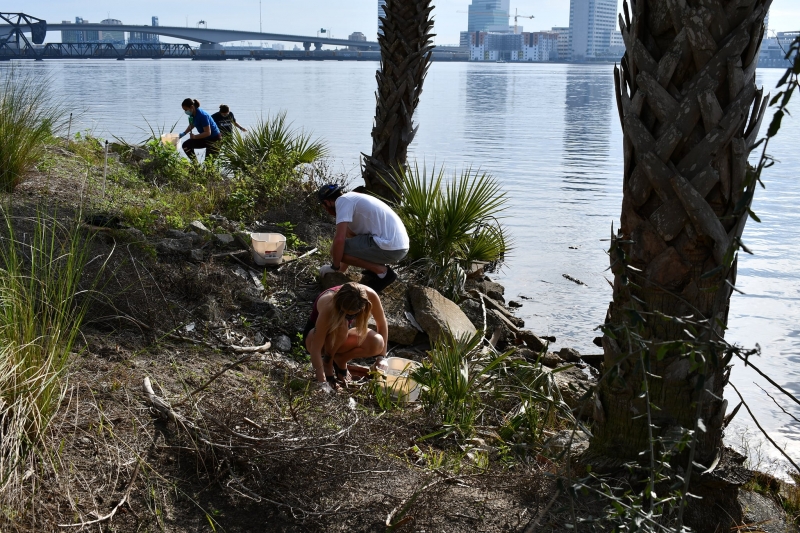
Eckerd College in St. Petersburg, Florida is teaming up with the University of North Florida in Jacksonville, Florida to change behaviors of college students, resulting in long-term, widespread reductions in overall plastic consumption. This new partnership builds on a previous project in partnership with the NOAA Marine Debris Program, that aimed to reduce consumption of single-use plastics on the Eckerd College campus. Both campuses will engage students through education and outreach initiatives, along with beach and campus cleanups. Students will also take on week-long Plastic Reduction Challenges by logging each time they use or refuse a single-use plastic item with an easy-to-use smartphone app.
In Puerto Rico, derelict lobster and fish traps are a prevalent problem in nearshore waters and can cause physical damage to sensitive habitats while trapping, entangling, and killing target and non-target animals, including endangered and protected species. To address this issue, The Ocean Foundation, in partnership with Conservación ConCiencia, will work with local dive fishers to expand their derelict fishing gear removal efforts. In a “fisher to fisher” awareness and training initiative, they will also collaborate with dive fishers in the U.S. Virgin Islands to share knowledge, experiences, and best practices to address derelict fishing gear in the region.
Ocean Aid 360, a marine habitat restoration non-profit, is joining forces with boaters, anglers, watershed groups, industry, students, and government through training and sponsored events, called Ghost Trap Rodeos, to detect and remove marine debris along Florida coastlines. After a previous campaign supported by the NOAA Marine Debris Program netted great results, the effort continues with the support of a Fishing for Energy partnership. Almost 20,000 pounds of ghost traps, trap line, and other marine debris have already been removed from the ocean and shorelines of Apalachicola Bay, Tampa Bay, and the Florida Keys! Additional Ghost Trap Rodeos are planned at a variety of locations throughout Florida, including Homosassa, Jacksonville, and Cocoa Beach.
In addition to these projects, we have several partners across the region working to take on marine debris created by recent hurricanes. The Florida Fish and Wildlife Conservation Commission, Florida Department of Environmental Protection, Puerto Rico’s Department of Environmental Protection, and the U.S. Virgin Islands Department of Planning and Natural Resources are continuing to remove debris and restore critical habitats after damage from Hurricanes Irma and Maria. With support from the Hurricane Response Marine Debris Removal Fund, a partnership between the NOAA Marine Debris Program and the National Fish and Wildlife Foundation, the University of Florida, City of Mexico Beach, and Dog Island Conservation District are leading efforts to assess and remove marine debris created by Hurricane Michael.
The problem of marine debris is vast, but the dedication and perseverance of our partners working to tackle it is greater. Together, we’re engaging local communities in cleanup efforts, finding innovative ways to prevent marine debris, and working towards a cleaner Florida and Caribbean region. Stay tuned this week to the NOAA Marine Debris Program blog to learn more about projects in Florida and the Caribbean in partnership with the National Marine Sanctuary Foundation and University of the Virgin Islands!

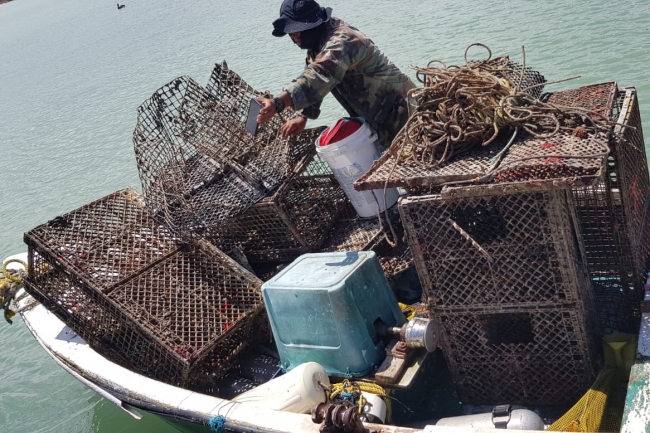
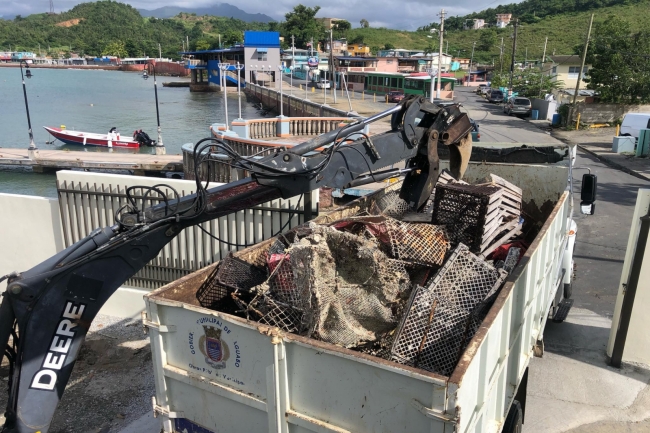
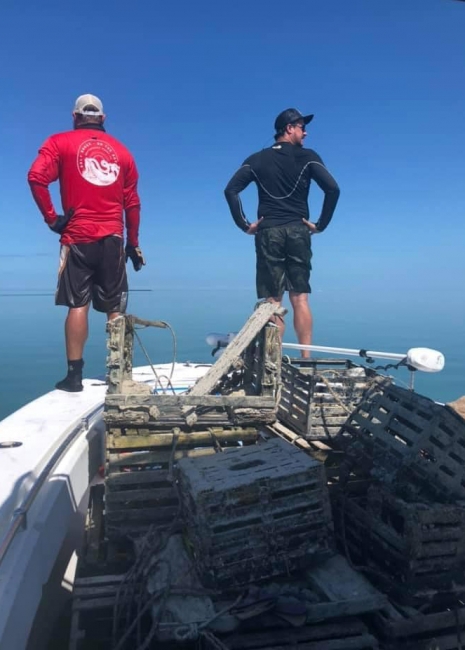
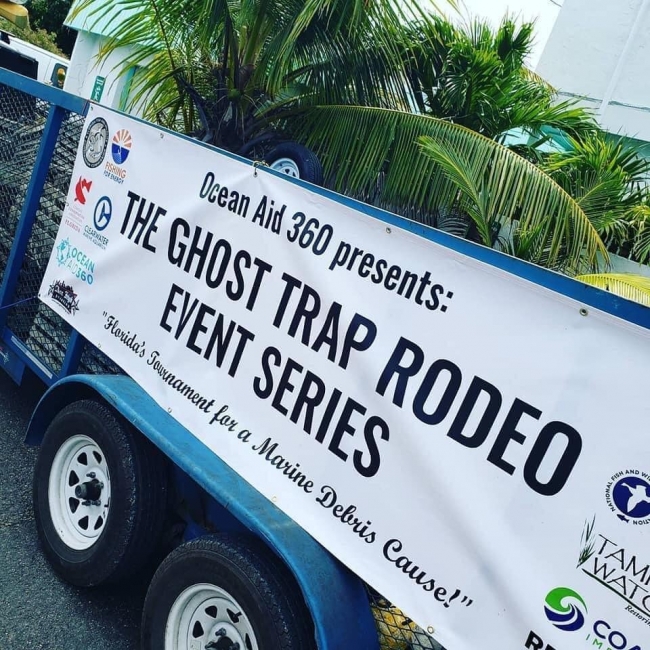
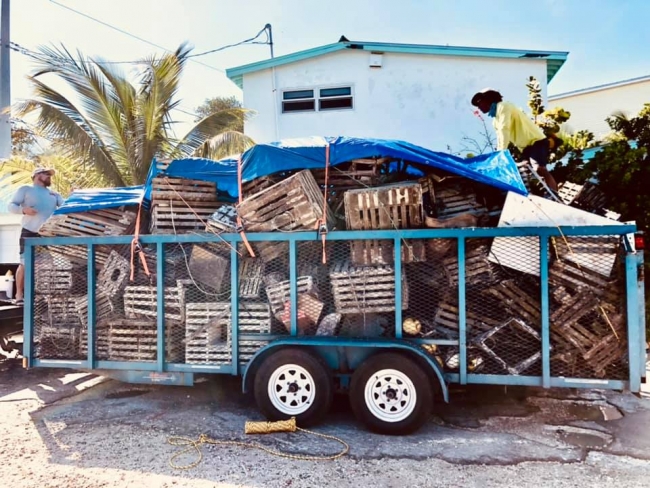
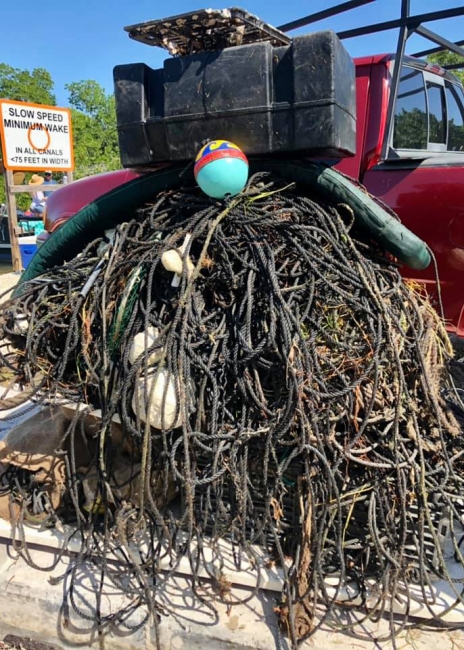
Thank you for acknowledging efforts in Puerto Rico. Last week I collected a garbage can of waste seaside here in Mayaguez. Mostly bags of broken glass, bottle necks and sharp shards of all sizes. At recycling plants glass can bring in about 17 dollars a bucket. The set up costs are high which is prohibitive to most communities. I collected 3 grocery bags full in about 15 minutes. I plan on continuing to focus on glass debris here.